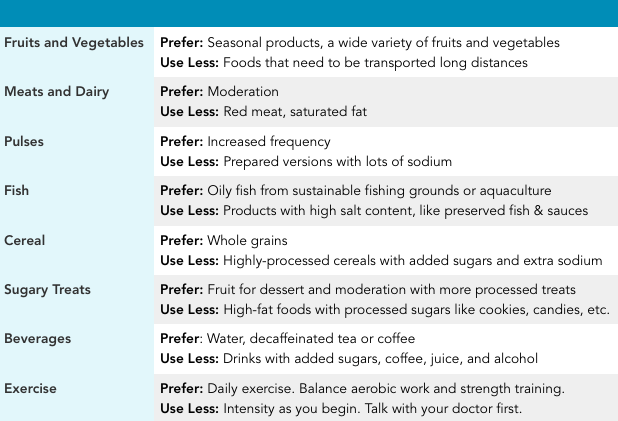Eating Sustainably is Great for You and the Environment
Plant-based eating patterns can be helpful when it comes to the prevention of chronic disease as well as protecting the health of our planet. After all, a plant-based diet may reduce the risk for diabetes, heart disease, obesity, and cancer. In addition, meat production has a bigger and more negative impact on the environment than plant-based food production. Sustainable changes in dietary patterns may reduce greenhouse gas emissions and have been found to be proportionate to the reduction in consumption of animal-based diets.Diets that are nutritionally adequate, healthy, safe, and sustainable have a better effect on the planet. These eating patterns should be acceptable from a cultural perspective, easy to obtain, affordable, equal to all, and ideally add to food and nutrition security for balanced lifestyles currently and in the future. These types of nutrition policies can be very useful in promoting population health.Key issues to improve diet quality while sparing the environment include consuming more vegetables, pulses, fruits, and whole-grain cereals while limiting intake of animal-based foods such as red meat and processed meat, particularly when they are not coming from sustainable sources.All sectors of society and the food chain -- including local authorities, governments, environmentalists, farmers, retail and marketing reps as well as media -- should be involved. An independent source of authority should be positioned to gather political and public support to initiate implementation. Monitoring of these strategies may be done by public health professionals. Methods to monitor health and sustainability of populations and the environment and assess the effects of project initiation should be developed by public health professionals in the private and public sectors. Production, promotion and distribution of food by private companies should be sustainable and healthy and include consumer-friendly, reliable nutrition information, including food labels. While completely removing meat and dairy from our diets may not be feasible, plant-based diets are a cost-effective way to prevent disease and promote the health of the environment. The chart below provides some simple ways to achieve a more healthful diet while preserving the environment. Ideas for consumption of less sugar and increasing physical activity are also included... By Lisa Andrews, MED, RD, LDReferences
By Lisa Andrews, MED, RD, LDReferences
- Tuso, P., Ismail, M., Ha, B., Bartolotto, C. Nutritional Update for Physicians. Perm J. v.17(2); Spring 2013 PMC3662288
- Lukasz Aleksandrowicz, Edward Joy, Pete Smith, Andy Haine. The Impacts of Dietary Change on Greenhouse Gas Emissions, Land Use, Water Use, and Health: A Systematic Review. PLOS ONE | DOI:10.1371/journal.pone.0165797 November 3, 2016
- Healthy and Sustainable Diets for European Countries. Report of a Working Group. EUPHA. (PDF Download Available). Available from: https://www.researchgate.net/publication/317933930_Healthy_and_Sustainable_Diets_for_European_Countries_Report_of_a_Working_Group_EUPHA [accessed Oct 2, 2017].
PDF Handout: Sustainable Plant-Based Handout


